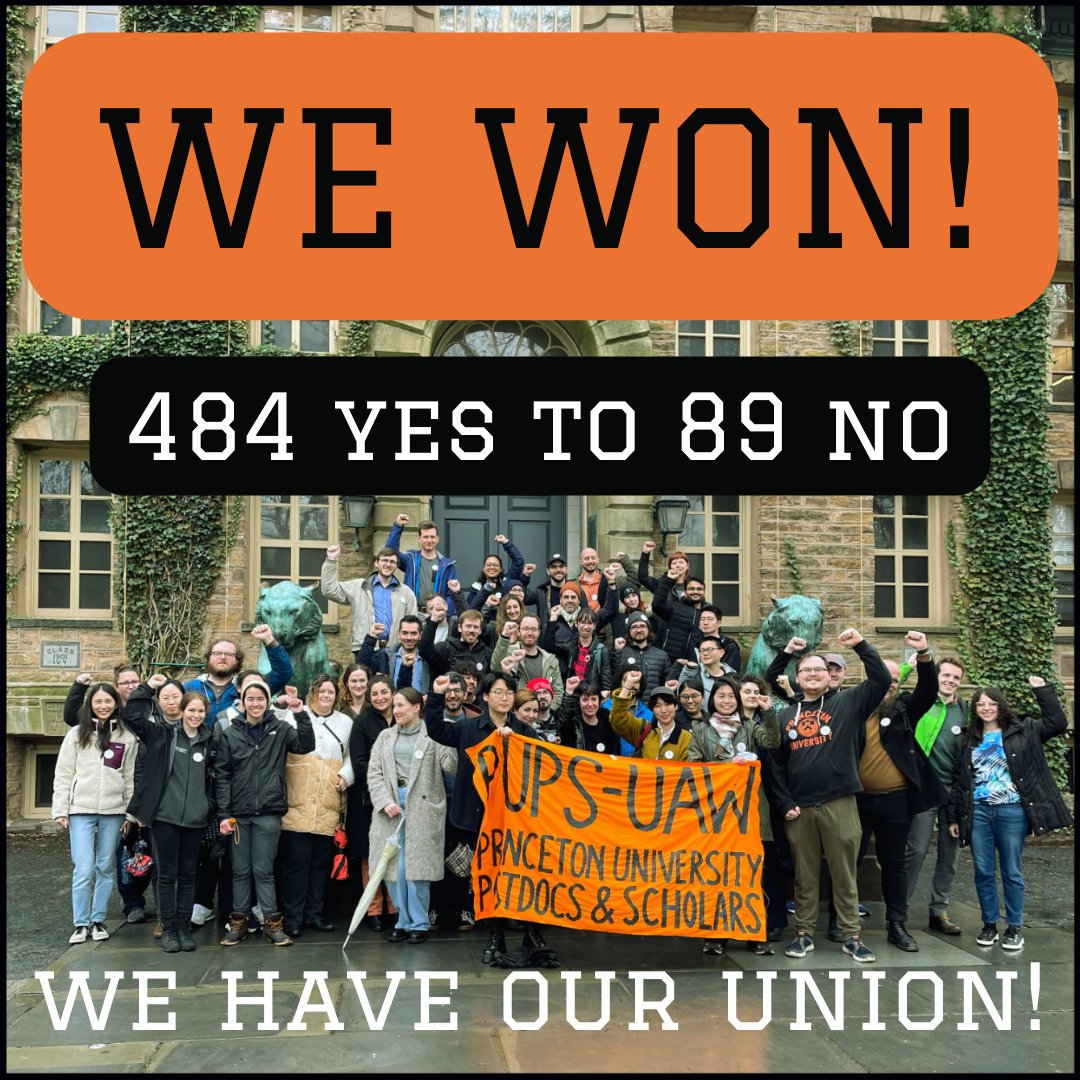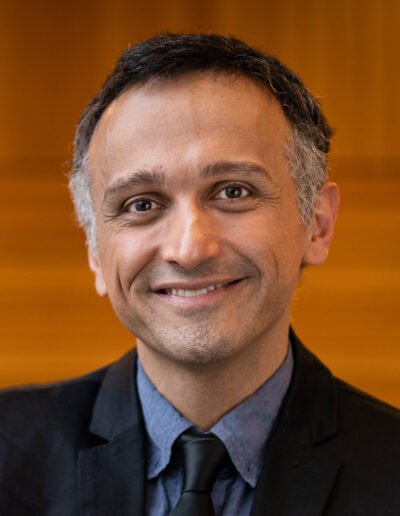We Won Our Union!
Through our union, Princeton University postdoctoral researchers are improving the research experience at Princeton and increasing our voice as researchers locally and nationally.
Postdoctoral researchers make essential contributions to the world-class research conducted at Princeton University, but many of us still struggle to pay high housing and other costs in Princeton, lack secure rights in the workplace, and face increasing uncertainty about our futures given the precarious nature of science funding and unstable regulation of visas and work authorization in recent years.
We join a growing national movement of researchers and other academics forming unions with the UAW to improve our lives and our work. UAW postdoctoral researchers and graduate student workers across the country have made a difference advocating for science research funding, fair visa and immigration policies, and better working conditions in all academic institutions.
We have already seen the power of organized researchers at major institutions to dramatically improve their working conditions through unionization with the UAW, like Columbia University, where researchers formed the first union for postdocs at a private institution in the United States, UAW Local 4100. By building on their experience we can continue to raise standards for researcher working conditions.
Hear from some colleagues about why they support the union for postdoctoral researchers at Princeton University.

Evan Russek, Computer Science
“I support a union because, with collective action, postdocs will have more power to shape our working conditions at the university.”
Rachel Bedder, Princeton Neuroscience Institute (PNI)
“Postdocs move their lives here to produce high quality research. This takes time, but many postdocs in STEM are only given unpredictable, one-year offers of employment, causing unnecessary stress that distracts from research. By unionizing we can negotiate for longer and more stable appointments.”
Harrison Ritz, Princeton Neuroscience Institute (PNI)
“My name is Harrison, and I’m a first year postdoc in PNI researching the neural dynamics of attention. As an international scholar my ability to do my research depends on the University’s visa policies and U.S. immigration law. With a union we could negotiate for greater support for international scholars and have a bigger voice in national policy-making so we can focus on our research, and not our immigration status.”
Manuel Schottdorf, Princeton Neuroscience Institute (PNI)
“It is hard for many of us to focus on science when preoccupied with housing, child care or visa issues. With a union Princeton would be obligated to negotiate with us over improvements in these areas.”
Joao Raimundo, Lewis-Sigler Institute for Integrative Genomics
“Postdocs drive scientific research across the world. Historically, our passion for research and commitment to science has been exploited by research institutions by not providing compensation commensurable with our experience and productivity. The increasing cost of living felt in recent years has pushed this situation to a critical point, especially for postdocs with families or on a visa. Organizing through a union is paramount for guaranteeing a seat at the table and negotiating better working conditions to the benefit of the entire science community.”
Paola Estrada, Molecular Biology
“The lack of affordable housing near Princeton causes uncertainty and stress – we are constantly moving to offset rising costs and continue moving farther away. This jeopardizes our ability to focus on the research we are here to do. With a union we can bargain for salaries that keep pace with the high cost of living and inflation in Princeton.”
Lucia Perez, Astrophysical Sciences
“Postdocs are an enormous force of innovation and research, particularly at Princeton–every single one of us should have the income, benefits, and support from the University needed to lead balanced lives. No-one should have to worry if they’ll still have a job at the end of a short contract, or if they’ll be able to afford another rent increase. Unionization and collective action can give us the power to improve our lives.”
Palas Kumar Farsoiya, Mechanical and Aerospace Engineering
“Collective representation through a union would give our voices more weight and help us better protect our interests. If we don’t do it now it will be a burden on future postdocs and they will have to go through the same suffering as we have.”
Guillaume Falmagne, High Meadows Environmental Institute (HMEI)
“I manage to live comfortably on my postdoc salary from Princeton because I am in good health, have no kids, and chose to live in a different city and commute. Before postdocs organized to win our recent raise, official university housing cost about two thirds of the minimum postdoc salary. For parents the support given by Princeton is insufficient to cover the cost of childcare causing postdocs to delay having children. By unionizing we can make sure postdocs can afford to thrive during our time at Princeton, regardless of our individual circumstances.”
Bernardo Zan, Physics
“My name is Bernardo Zan, and I’m a 4th year postdoc in Physics working on high energy theoretical physics. In my 30s, I had to make the choice between having five housemates in Princeton or spending hours every week commuting. I support a union so we can bargain for more affordable housing and a salary that allows us live near to where we work.”
Francisco Lara-Garcia, Sociology
“Being unionized as a graduate student made me more confident that discrimination and harassment claims would be taken seriously by the university and allowed us to bargain collectively to secure better benefits.”
Arun Kannawadi, Astrophysical Sciences
“Postdocs are a critical resource to any university, especially Princeton. We help grow the students, advance the research profile of the university. Yet, we have no say in the functioning of the university. This needs to change now, and with a union we would have more power to change it.”
Polina Iamshchinina, Princeton Neuroscience Institute (PNI)
“In addition to my job, which does not guarantee a stable position in the future, I need to deal with ever-growing anxiety of not affording to rent my own place, inability to buy a car, save money, not even mentioning starting a family. I live with three housemates and do not have any family to rely on but myself. Unionizing and fighting together for better income, job security and family-oriented benefits is paramount at this point. For me, this is a struggle for an incredibly interesting and exciting job that I have been hired to do, and I can do it even better by removing the current burdens.”















